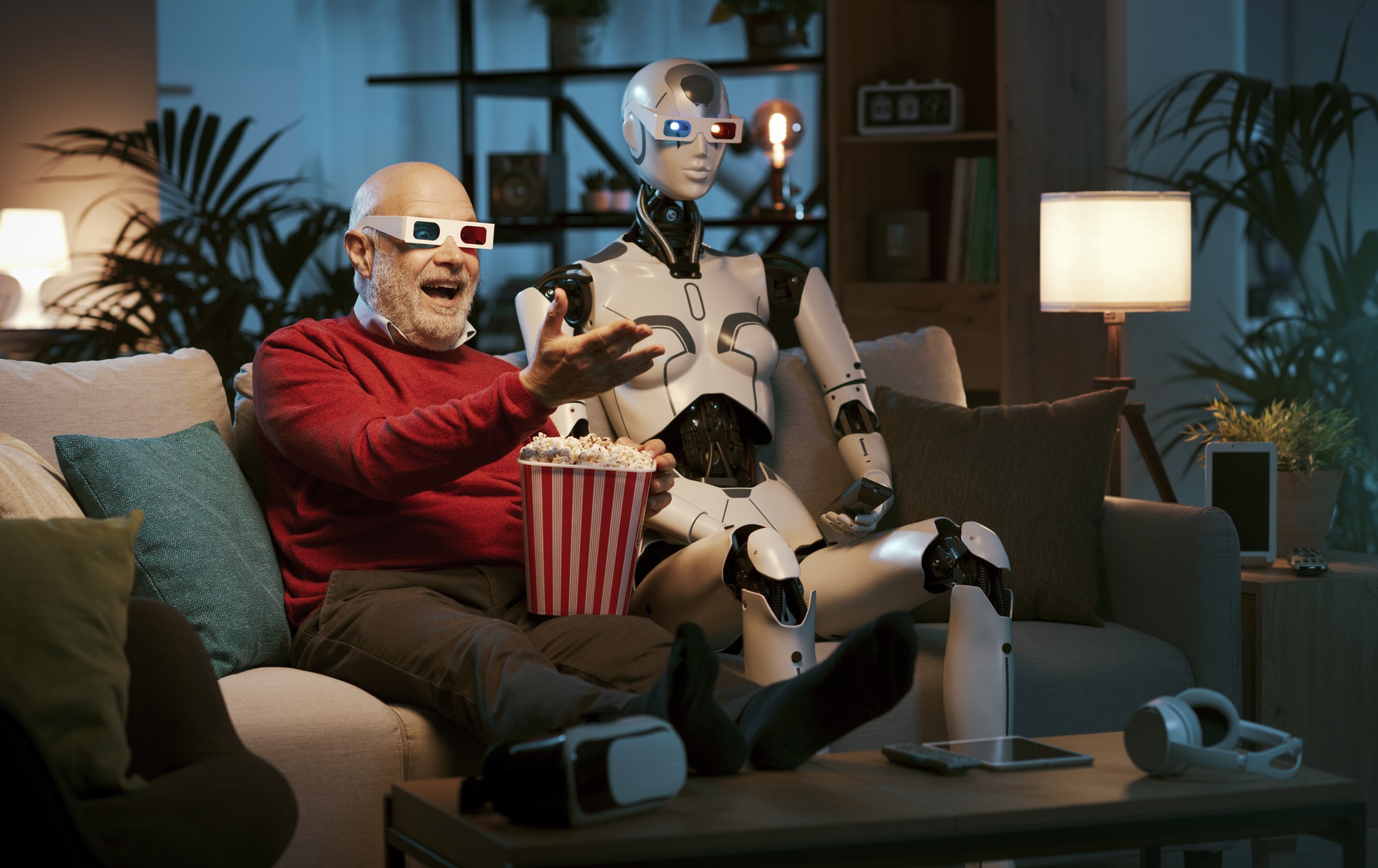AI’s Journey in Films: From Just a Cool Idea to Real Stuff
In movies, artificial intelligence (AI) has come a long way. It started as a cool, far-off idea in old movies like “Metropolis” (1927) and “2001: A Space Odyssey” (1968). These movies were more than just fun to watch; they introduced people to AI, even though it was just make-believe back then.

ChatGPT and Movies: Telling Stories in New Ways
With ChatGPT and other AI that can create stuff, storytelling in movies has changed a lot. Take “Her” (2013), for example. It’s about a guy who falls in love with an AI assistant. This kind of story feels more real now because we’re starting to use AI like ChatGPT in our lives. It makes the movie more interesting and something we can relate to.
Big AI Models in Movies: Showing Us Today’s Tech
Movies like “Her” show big AI models (like ChatGPT but in movie form) and how they interact with people. This gives us a cool look into the tricky stuff about AI and human relationships, like the emotions and moral questions involved.
AI Making Stuff in Movies: Asking Big Questions
Movies like “Ex Machina” (2015) and “The Artifice Girl” (2022) use AI to explore deep topics. They make us think about whether AI can really be like humans and what that means for stuff like consciousness and right or wrong.
How Movies Show AI: From Scary to Super Cool
Movies have shown AI in many ways, from the scary Skynet in “Terminator” to more thoughtful and complex stories in “Blade Runner” and its sequel. This change shows how we’ve started to see AI not just as a scary thing but also as something that can help and work with us.
AI’s Big Role in Hollywood and More
AI is making a big splash in Hollywood. It’s not just about new stories; it’s also changing how movies are made. AI is helping with scriptwriting, special effects, and more. It looks like AI might become a big part of making movies in the future.

FAQ Section
Q1: What was the role of AI in early films like “Metropolis” and “2001: A Space Odyssey”?
A1: In early films like “Metropolis” and “2001: A Space Odyssey,” AI was mostly a futuristic concept. These films used AI as a way to explore what the future might hold, often in a speculative and imaginative manner.
Q2: How has the portrayal of AI in movies like “Her” changed with the advent of technologies like ChatGPT?
A2: With technologies like ChatGPT becoming a reality, movies like “Her” have gained new relevance. They now reflect actual possibilities and interactions with AI, making the stories more relatable and thought-provoking for today’s audience.
Q3: What are Large Language Models (LLMs) in cinema, and how do they reflect modern technology?
A3: LLMs in cinema, like the AI in “Her,” represent advanced AI communication systems. They mirror current AI tech and allow movies to delve into the complex emotional and ethical aspects of human-AI relationships.
Q4: What kind of questions do films like “Ex Machina” raise about AI?
A4: Films like “Ex Machina” raise significant questions about AI, such as the potential for AI to mimic human behavior, the nature of consciousness, and moral dilemmas surrounding advanced AI technologies.
Q5: How has the depiction of AI in cinema evolved from being a threat to a collaborative force?
A5: Initially, AI in movies was often portrayed as a threat (like Skynet in “Terminator”). Over time, this portrayal has evolved to more nuanced and sympathetic depictions (like in “Blade Runner”), reflecting a shift in our understanding of AI as a potential collaborative force rather than just a threat.
Q6: In what ways is AI influencing modern filmmaking?
A6: AI is influencing modern filmmaking in various ways, including script analysis, enhancing visual effects, and potentially even in creative decision-making. This indicates a future where AI could be more directly involved in the creative process of filmmaking.
Q7: Can AI in movies influence our perception of real-world AI technology?
A7: Yes, AI in movies can significantly influence how we perceive real-world AI technology. Movies can shape our expectations, fears, and understanding of AI, impacting how we interact with and think about AI in our daily lives.
Sources Techopedia


